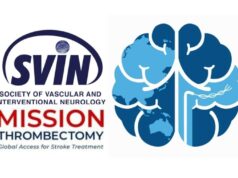Positive new data have been released on a drug candidate for relapsing multiple sclerosis that was first discovered and synthesised at The Scripps Research Institute.
According to the results from a six-month phase 2 study of 258 multiple sclerosis patients, the drug candidate RPC1063 reduced the annualised relapse rate of participants with multiple sclerosis by up to 53%, compared with placebo. The potential therapy also decreased the emergence of new brain damage seen by magnetic resonance imaging (MRI) by more than 90%.
In addition, safety results suggest a favourable risk-benefit profile. More than 98% of patients remained on the drug regimen—an important metric as existing drugs for multiple sclerosis are often difficult for patients to tolerate.
RPC1063 was first discovered by a “hit” from a National Institutes of Health molecular library during research at Scripps Florida’s Molecular Screening Center. The compound was then synthesised and further developed in the laboratories of Scripps California Professors Ed Roberts and Hugh Rosen.
“These data support our labs’ approach at The Scripps Research Institute that discovery of fundamental mechanisms in chemical biology provides the foundation for intelligent intervention in disease processes,” says Rosen. “Meeting the needs of patients and their families is our high calling in biomedical science.”
Patrick Griffin, chair of the Department of Molecular Therapeutics and director of the Translational Research Institute at Scripps Florida, adds, “This development is an exciting outcome resulting from research within the Scripps Florida Molecular Screen Center. We expect many other programmes that Scripps Florida has been involved in will have similar potential to improve human health.”
The new RPC1063 findings were presented recently at the MS Boston 2014 meeting.
Receptos, a San Diego biopharmaceutical company that licensed the technology from The Scripps Research Institute, is developing RPC1063 for approval by the US Food and Drug Administration. The drug candidate is currently in a phase 3 randomised, double-blind study involving 1,200 relapsing multiple sclerosis patients. The trial is expected to be completed in 2017.
The mechanism of RPC1063 (Sphingosine 1-Phosphate Receptor modulation) may also be significant in the treatment of other autoimmune diseases. An ongoing phase 2 study (called Touchstone) for the treatment of moderate-to-severe ulcerative colitis is fully enrolled, with results expected by the end of this year.













